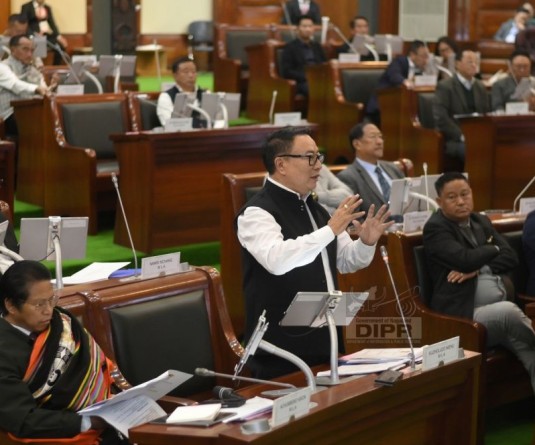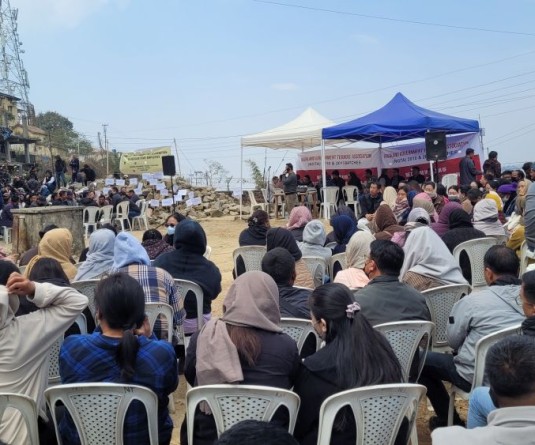
Morung Express News
Dimapur | January 30
As the haze lifted on the Dimapur sun on Monday, it did little to melt the ice at the Police Guest House in Chumukedima. Top leaders from the Nagaland State Government and the Joint Coordination Committee (JCC) met here at 12:00 pm on January 30 to find a way out of the ULB election storm—only this time, the Nagaland Baptist Church Council (NBCC) played the critical role of mediating the meet.
By 4:30 pm, the two parties, that had faced off on hard stands earlier, finally relented and drew a temporary compromise. It has saved the people of Nagaland from an impending disaster.
God’s Providence
“Everybody felt that something ought to be done,” said Rev. Dr. Wati Aier, a key mediator at the meeting today. Following the crucial prayer in churches all over Nagaland State on January 29, concerned citizens and the NBCC stood up to the “voice of God,” and called for a meeting. The Nagaland State Government and the JCC were contacted; both expressed willingness to partake in such a meeting and the ball was set rolling.
Several mediators quickly came together, in what one participant termed “God’s Providence.” The Chief Minister’s Office promptly arranged for a chopper drop to the Nagaland Armed Police Training Centre at Chumukedima (where the Guest House is located) on January 30, while the JCC leaders and participants from the mediating side, both from Kohima and Dimapur, drove in.
“Issues needed to be discussed across the table, and both sides were kind enough to sit and talk,” highlighted Dr. Aier. The meeting started and ended with prayer. “Let us not raise our voices and talk of the past. Let us talk of how we can move forward,” were the ground rules.
As the dialogue unfolded
Initially, the atmosphere at the meeting was tense. “Both the State Government and the JCC are working for the welfare of the people, and are working from a position of love for the people. Here they got a chance to express their positions, and misunderstanding, and eventually came to a point where they realized that negotiation is possible,” explained Rev. Dr. Zelhou Keyho, General Secretary of the NBCC, another key figure in unlocking the present situation.
Both experienced in peace mediation, Dr. Aier and Dr. Keyho held the meeting together and made strong interventions at the right time till the ice cracked—when TR Zeliang made a suggestion—and the parties began to listen to each other.
“Dialogue was much needed to understand each position—both parties were polite and willing to listen,” said Dr. Keyho.
While both parties held ground, they also had to “save face” given the violent turn events were taking, explained a mediating participant. A Nagaland State Government official present at the meeting said that once ice was broken and light seen, the “meeting became friendly” as each began to “appreciate” the other’s position.
With this as a start, a new window of opportunity has opened to reason out and find a creative approach towards public dialogue on the issue, the mediating participant noted.
Harder work ahead
In the next few months, we have to work harder as many challenges remain ahead of us, acknowledged Dr. Keyho. The first step will be a State Cabinet meeting at 11:00 am, Tuesday, January 31, even as the JCC speaks to the people. Then the State Election Commission’s decision will be sought on deferring the ULB polls.
“The Government understands the position of the JCC. We are both working for the welfare of the people,” said the State Government official present at the meeting. The Government and the JCC had last met on January 25. But today, “the presence of the church leaders was critical” noted the official. The official hoped that the Joint Action Committee on Women’s Reservation will also understand the situation.
“Nothing new was said today but a third party was essential to help them out,” said a mediating participant. For Dr. Keyho, “believers praying all over Nagaland State came as a breakthrough,” and this marks the “beginning” of understanding the issue, “not the end.” The NBCC, he said, will not be “conditional” or “rhetorical” in its approach and continue to play a role in any possible way.






